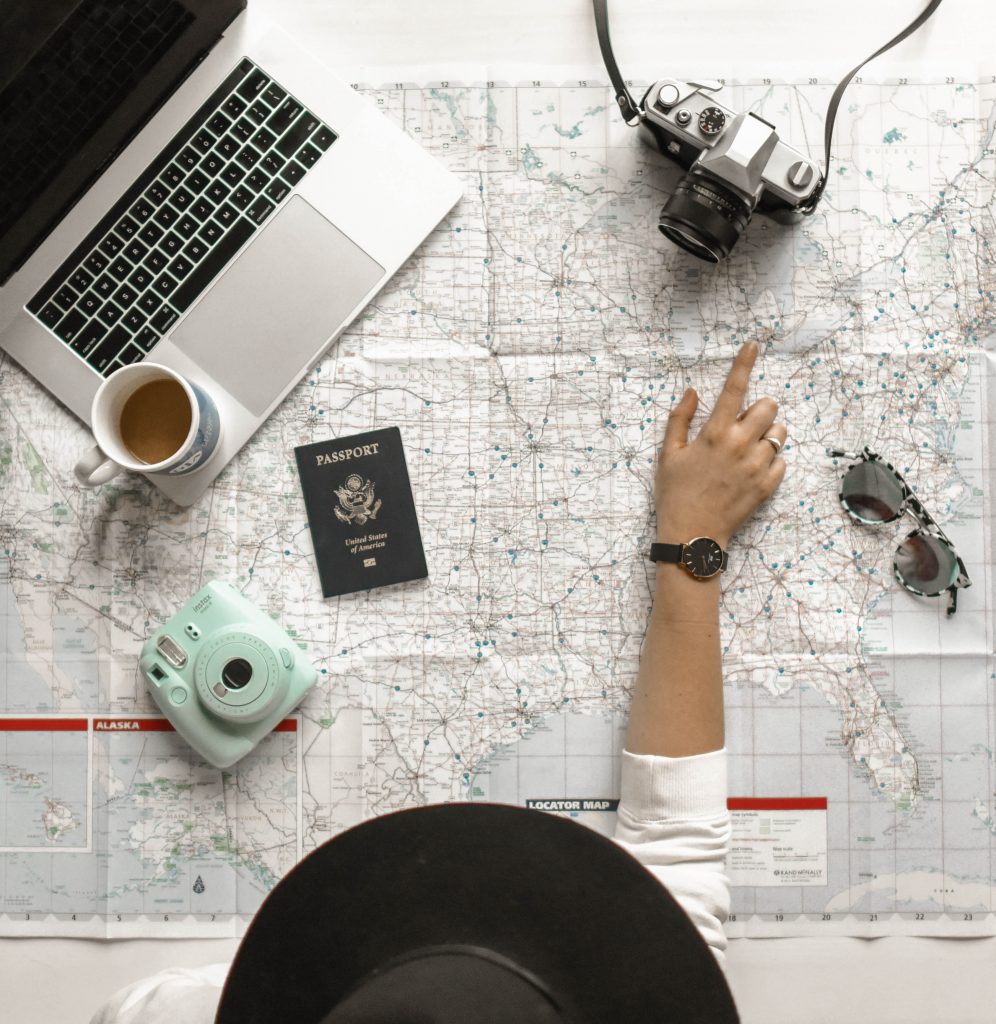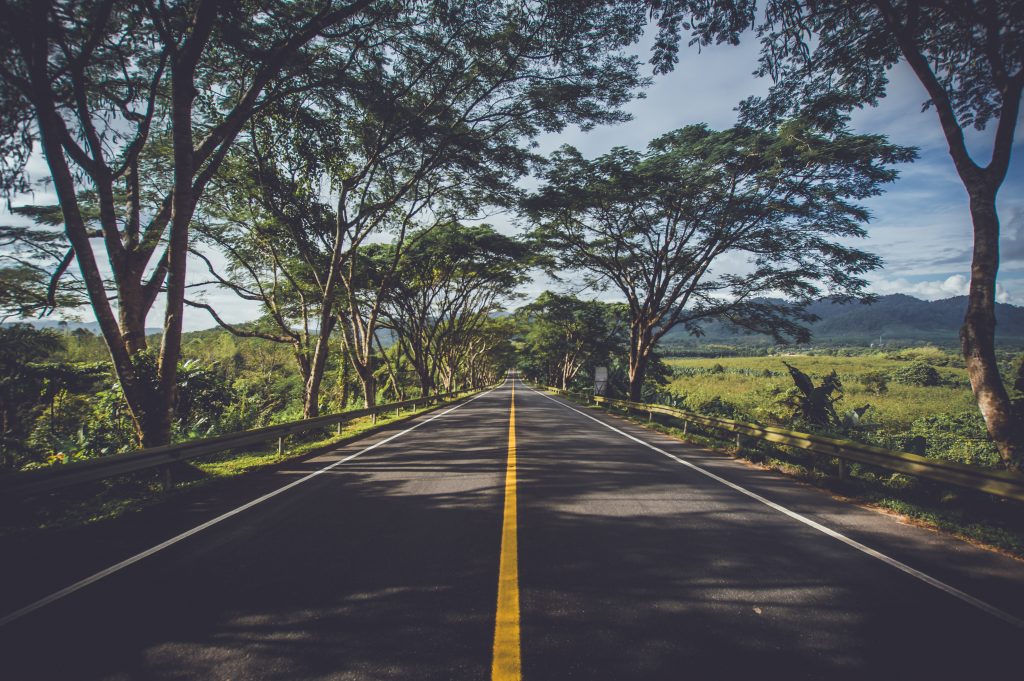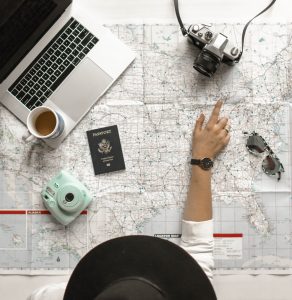Traveling with CF
Do you also dream of white beaches, the rainforest or the endless vastness of the mountains? Do you want to explore the world, learn things about foreign cultures? Our world offers so much to discover. For many people, travelling is one of the most beautiful things to experience. Many of us CFers have also been gripped by travel fever. Do you still have some concerns about how you can travel with CF? The last years I have been on the road a lot, visited 5 continents so far, lived at the other end of the world for a while, was in the jungle and on lonely islands, in big cities and small villages. From my experience I would like to give you a few tips.
Why you should travel?
Travelling does not only show you many beautiful sides of life, but also teaches you a lot. On your travels you learn a lot about other cultures, about how they deal with everyday life, about happiness and love. When you travel you also see how well we are actually doing here. You learn to appreciate things more, you get a different perspective and it educates you. It brings you into new situations and challenges you. I recommend you, travel! That doesn't necessarily have to be very far, you will also encounter new ones in your immediate surroundings.

Traveling with CF
When traveling it depends of course very much on your condition. With oxygen, acute infections and other secondary illnesses, this is of course not so easy. However, if you are doing reasonably well, this should not be a problem. Of course there are some points to consider, but in principle: Don't worry and enjoy it. I have never had any problems while travelling or at customs.

Why you should travel?
Travelling does not only show you many beautiful sides of life, but also teaches you a lot. On your travels you learn a lot about other cultures, about how they deal with everyday life, about happiness and love. When you travel you also see how well we are actually doing here. You learn to appreciate things more, you get a different perspective and it educates you. It brings you into new situations and challenges you. I recommend you, travel! That doesn't necessarily have to be very far, you will also encounter new ones in your immediate surroundings.


Traveling with CF
When traveling it depends of course very much on your condition. With oxygen, acute infections and other secondary illnesses, this is of course not so easy. However, if you are doing reasonably well, this should not be a problem. Of course there are some points to consider, but in principle: Don't worry and enjoy it. I have never had any problems while travelling or at customs.
A few tips
- Always take enough medication with you. Obtaining medication abroad always involves a lot of effort and depending on the cost. In many countries, moreover, the same medicines are not always available. For a 2-week trip I always take a 3 week supply with me. Certain medications are more strictly regulated in certain countries, but your CF team should know about it.
- If you're going away longer, take a separate suitcase filled with enough medication with you. If necessary, someone can send you supplies.
- Always take a confirmation from your CF team with you. It explains in English what exactly you have, what therapies and medications you need and what you need to carry with you. Especially when travelling by air you should have these with you so that you can carry the medication in your hand luggage. Everything you need urgently belongs in your hand luggage anyway (e.g. Creon, inhaler, Muccoclear, Oxis etc.).
- Get yourself vaccinated first. Your hospital or the local vaccination centre can give you information about the situation in the country.
- On excursions always take water (bought in the supermarket) and something salty with you. This is important for us, especially in warm regions.
- Find out in advance if there is a CF position in this country. Your local hospital should be able to tell you. So you can turn to this place in case of emergency. If you are staying longer in the same place, it would be worth contacting this CF team beforehand, just so they know you are in the area.
- Don't forget to bring a power adapter for your devices. Not every country has the same sockets. Buying the right adapter on the spot can be very tedious (It took me 2 days in Tokyo).
A few tips
- Always take enough medication with you. Obtaining medication abroad always involves a lot of effort and depending on the cost. In many countries, moreover, the same medicines are not always available. For a 2-week trip I always take a 3 week supply with me. Certain medications are more strictly regulated in certain countries, but your CF team should know about it.
- If you're going away longer, take a separate suitcase filled with enough medication with you. If necessary, someone can send you supplies.
- Always take a confirmation from your CF team with you. It explains in English what exactly you have, what therapies and medications you need and what you need to carry with you. Especially when travelling by air you should have these with you so that you can carry the medication in your hand luggage. Everything you need urgently belongs in your hand luggage anyway (e.g. Creon, inhaler, Muccoclear, Oxis etc.).
- Get yourself vaccinated first. Your hospital or the local vaccination centre can give you information about the situation in the country.
- On excursions always take water (bought in the supermarket) and something salty with you. This is important for us, especially in warm regions.
- Find out in advance if there is a CF position in this country. Your local hospital should be able to tell you. So you can turn to this place in case of emergency. If you are staying longer in the same place, it would be worth contacting this CF team beforehand, just so they know you are in the area.
- Don't forget to bring a power adapter for your devices. Not every country has the same sockets. Buying the right adapter on the spot can be very tedious (It took me 2 days in Tokyo).
A few questions and answers
Contact your CF team in your country. Find out in advance if there is a CF position in your country. Search for the local emergency number (usually 112, 999 or 911).
Basically you should only do this from countries where you know it is clean (e.g. Switzerland, Austria, Norway etc). If you are not sure, don't risk anything. Better buy a stock in the supermarket. This also applies to mouthwash after brushing your teeth and washing your face.
The air in an aircraft is thinner and contains less oxygen. Saturation in the blood drops by about 6-10%. If you have deep saturation anyway, you should consider oxygen. Your CF team can help. This is usually covered by your health insurance. This must be reported to the airline beforehand. From my own experience I can say that flying with low saturation can be a torture. If your saturation is over 94, I wouldn't worry. If you are among them, discuss this with your doctor beforehand. Enclosed you will find an oxygen computer of the German respiratory league: Calculate oxygen
Absolutely. This can help to react better in an emergency. Don't be ashamed to tell your travel mate.
I think water is always the biggest issue. But also pay attention to the local temperatures, not everyone can cope with very cold or very hot air. Even humid regions can be a problem. But I think try it out, then you know. If you book trips that are physically strenuous, inform the tour guide beforehand and take the CF confirmation with you.

